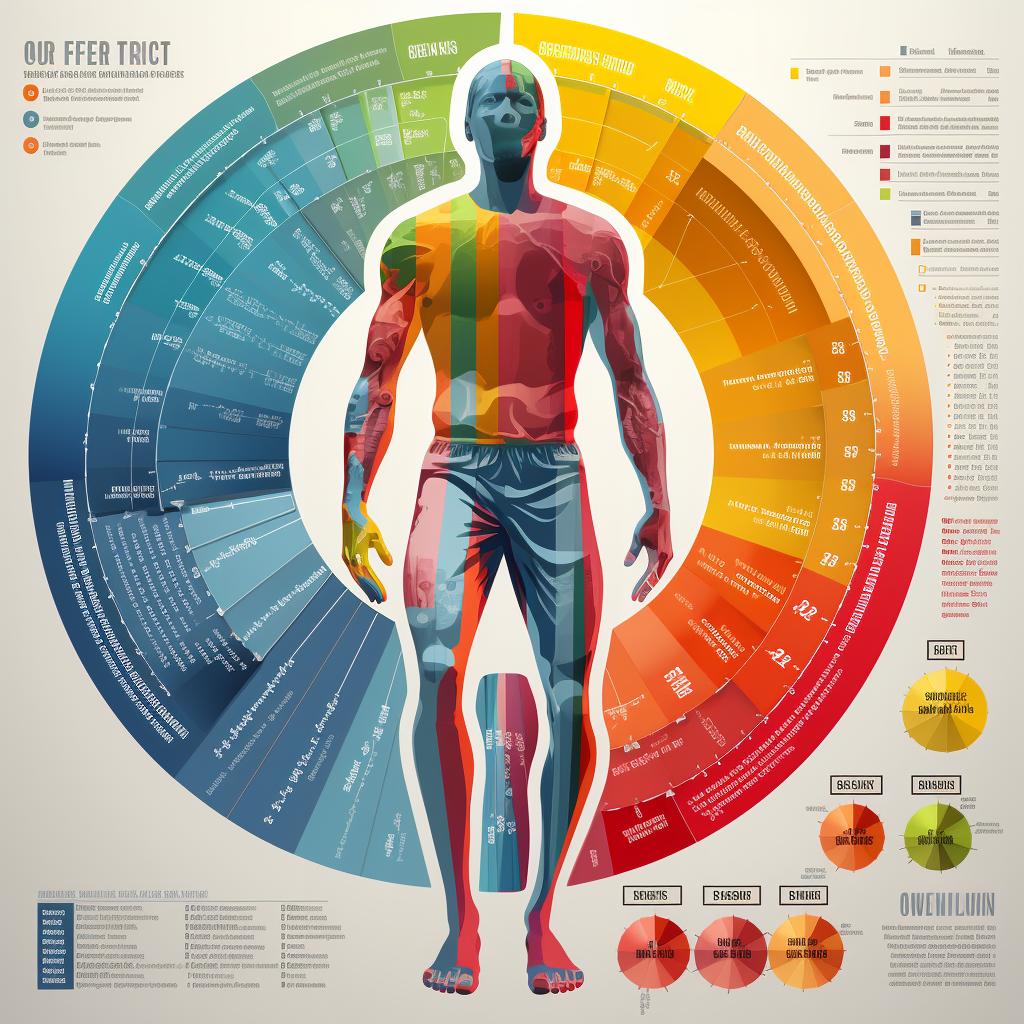The importance of Health-First Weight loss.
Losing 4 kilograms in just 10 days may sound like a tempting proposition, especially when you have an upcoming event or a desire for quick results. However, it's vital to remember that your health should always come first. We're not in the business of selling miracle solutions; we're focused on your well-being.
While we can provide you with some general tips for achieving your weight loss goals, we want to stress the importance of approaching this journey realistically and safely. Rapid weight loss can have potential health risks, and it's crucial to consult with a healthcare professional or a registered dietitian before making any significant changes to your diet or exercise routine.
In this article, we'll offer guidance on achieving a healthier lifestyle and sustainable weight loss. We understand that swimsuit season, upcoming events, or a desire for change can be powerful motivators, but your long-term health should be the ultimate goal. We'll provide you with short-term strategies and long-term suggestions to help you reach your weight loss objectives while prioritizing your well-being.
Remember, your health is not a product to be sold—it's a precious asset to be protected. Let's embark on this journey together with safety, health, and realistic expectations as our guiding principles.
Achieving 4kg Weight Loss in 10 Days: Is it Realistic?
The answer is yes, but it comes with some important considerations. While some nutritionists suggest that rapid weight loss of 4-8 kg is achievable in a 10-day timeframe, let's take a more realistic and balanced approach.
To kickstart your journey toward losing 4 kg in 10 days, you'll need to make some strategic changes. Aim to create a calorie deficit by cutting down 500 calories through your diet and burning an additional 500 calories through exercise and home remedies each day. Remember, this is an ambitious goal and should be approached cautiously, with your health as the top priority.
Balanced Diet
1- Calculate your Personal Calorie Target:
The first step in your weight loss journey is determining your daily calorie intake. Instead of providing a specific number, we recommend using a trusted Total Daily Energy Expenditure (TDEE) calculator available on our website. The TDEE calculator takes into account your age, gender, weight, height, and activity level to provide you with a personalized daily calorie target.
2-Understanding Macronutrients:
Once you have your calorie target, the next crucial aspect is understanding how those calories should be distributed among macronutrients. Here's a general guideline to get you started:
Protein: Aim to consume an adequate amount of protein, which is essential for preserving muscle mass during weight loss. Protein should typically make up 15-25% of your daily caloric intake.
Carbohydrates: Carbohydrates provide energy for your body. They should make up around 45-65% of your daily calories. Opt for complex carbohydrates like whole grains, fruits, and vegetables, which provide sustained energy.
Fats: Healthy fats, such as those found in avocados, nuts, and olive oil, are essential for overall health. Aim for fats to make up 20-35% of your daily calorie intake.
Remember that these are general guidelines, and your specific macronutrient ratios may vary based on your individual needs and goals. Calculating your calorie target and understanding macronutrients are crucial steps toward creating a balanced and personalized diet plan for your 10-day weight loss journey.
Hydration
Proper hydration is a fundamental aspect of any diet and plays a significant role in both health and weight loss. Here's what you need to know:
Daily Intake: The recommended daily water intake can vary based on factors such as climate, physical activity, and individual needs. On average, men should aim for about 3.7 liters (or 15 cups) of total water intake per day, while women should aim for approximately 2.7 liters (or 11 cups) of total water intake. This includes water from beverages and foods.
Diet Benefits: Staying well-hydrated can be incredibly beneficial for your weight loss journey. Drinking an adequate amount of water can help control appetite, as it can make you feel fuller and reduce the likelihood of overeating. Additionally, water is essential for the proper digestion and absorption of nutrients from the foods you consume.
Health Benefits: Beyond weight loss, proper hydration is vital for overall health. Water is involved in nearly every bodily function, from regulating body temperature to eliminating waste products. Staying hydrated can improve skin health, aid in digestion, and support cognitive function.
During your 10-day weight loss plan, it's crucial to pay close attention to your hydration levels. Dehydration can sometimes be mistaken for hunger, leading to unnecessary snacking. To ensure you're adequately hydrated, monitor your water intake throughout the day and aim to spread it evenly. Remember that individual hydration needs may vary, so listen to your body and adjust your intake accordingly.
By prioritizing hydration, you can support your weight loss efforts, maintain your overall health, and ensure that your body is functioning optimally during your journey.
Exercise for Weight Loss
Exercise is a powerful tool in your weight loss journey, helping you burn calories and improve overall fitness. Here's what you need to know:
Calorie Target: To lose weight effectively, aim to burn approximately 500 calories through exercise each day in addition to the calorie deficit achieved through your diet. This can help you reach a calorie deficit of 1000 calories per day, which can lead to a sustainable weight loss of about 0.5 kg (1 lb) per week.
Cardiovascular Exercises: Incorporating cardiovascular exercises such as brisk walking, running, cycling, or swimming can help you burn calories and improve your cardiovascular health. Aim for at least 150 minutes of moderate-intensity or 75 minutes of vigorous-intensity cardio per week, spread over multiple sessions.
Strength Training: Strength training exercises, like weight lifting or bodyweight exercises (e.g., push-ups, squats), are essential for preserving and building lean muscle mass. Muscle burns more calories at rest, so maintaining muscle is crucial for long-term weight management. Aim to include strength training sessions 2-3 times a week.
Balance and Flexibility: Don't forget the importance of balance and flexibility exercises like yoga or Pilates. These workouts can help improve posture, reduce the risk of injury, and enhance overall well-being.
By combining cardiovascular exercises, strength training, balance, and flexibility exercises, you can create a well-rounded fitness routine that supports weight loss while preserving muscle mass. Remember that every individual is unique, so it's essential to adapt your exercise routine to your personal preferences and fitness level. Always consult with a fitness professional or personal trainer for personalized guidance.
The Role of sleep
A crucial but often underestimated aspect of any weight loss journey is sleep. Quality sleep is essential for various reasons:
Hormone Regulation: During sleep, your body regulates hormones that play a vital role in hunger and appetite control. Lack of sleep can disrupt these hormones, leading to increased cravings and potential overeating.
Energy and Performance: Adequate sleep ensures you have the energy and mental clarity to engage in exercise and make healthy food choices. Without proper rest, your motivation and willpower may suffer.
Muscle Recovery: Sleep is when your body repairs and builds muscle tissue. It's a crucial part of maintaining lean muscle mass, which can help you burn more calories at rest.
Stress Management: Sleep is essential for managing stress, which can often lead to emotional eating or unhealthy food choices.
To support your weight loss efforts and overall health, aim for 7-9 hours of quality sleep per night. Establishing a consistent sleep schedule and creating a relaxing bedtime routine can contribute to better sleep quality. Remember, sleep is a foundational pillar of a healthy lifestyle, complementing your diet and exercise routine.
Conclusion
In your 10-day weight loss journey, it's crucial to strike a balance between ambition and realism. While it's possible to lose weight quickly, it's equally vital to safeguard your health and well-being. Prioritize sustainable habits, nourishing your body with balanced nutrition, staying active, and ensuring restful sleep. Remember, the goal is not just to lose weight but to embark on a journey toward a healthier, happier you. By adopting these tips and focusing on long-term well-being, you'll set yourself up for success in the short term and beyond.
Tips for Successful Weight Loss:
Calculate Your Caloric Needs: Use a TDEE calculator to determine your daily calorie target.
Balance Macronutrients: Distribute your calories among protein, carbohydrates, and fats according to your goals.
Stay Hydrated: Aim for 3.7 liters a day for men and 2.7 liters for women.
Incorporate Exercise: Burn around 500 calories through exercise each day.
Diversify Workouts: Combine cardio, strength training, and flexibility exercises.
Preserve Muscle: Prioritize protein, progressive resistance, and adequate rest.
Embrace Sleep: Aim for 7-9 hours of quality sleep to support your weight loss and overall health.






